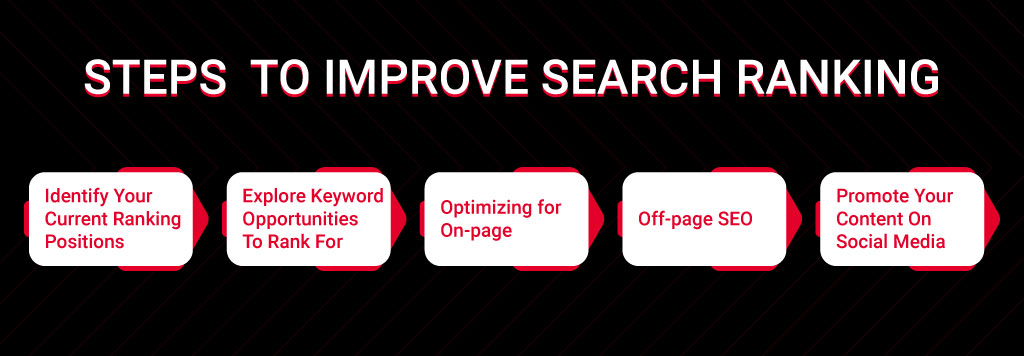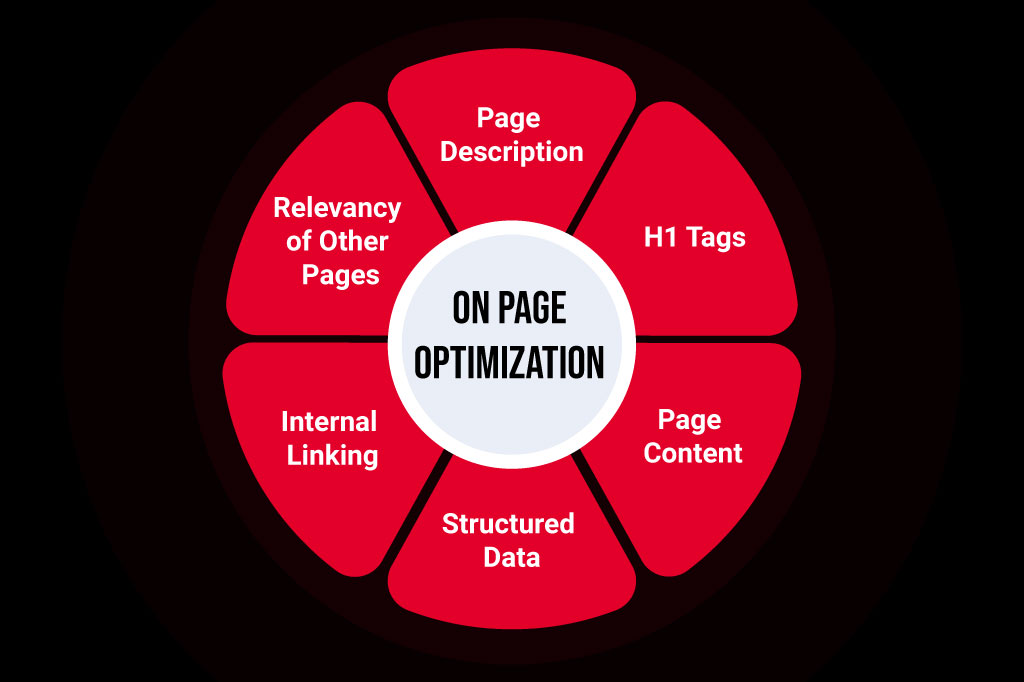If you are doing SEO for your business, you are likely to know the difference between the whole website ranking, page ranking and keyword rankings for particular pages. In this blog, we have discussed how you can improve your website ranking by utilising the best SEO practices.
SEO is one of the most unpredictable and rapidly changing aspects of digital marketing – what is working today may not work tomorrow and what you have done so far may not show results as you may have expected. But that doesn’t mean that you should give up on SEO.
It may happen sometimes that you want to target your page for a particular keyword but it gets targeted for another keyword – there is nothing new in this as Google will prioritize content that people are engaging with and finding valuable.
If you are wondering how you can get the desired results, and how to make a page rank for a particular keyword; keep reading this blog and you will get related stuff that may help you improve your rankings.
There is a difference between optimizing and over-optimizing your website. The first one will skyrocket your rankings while the latter one will do more harm than good. You need to make sure that you are sending the “right signals” to Google to get the desired results.
How can you improve your website ranking and optimize your keyword rankings:

1. Identify Your Current Ranking Positions
The first step is to see where you are standing when it comes to your target keywords. Without knowing your current position, you can’t set your goals and KPIs. Let’s say you are ranking in the 50th position, you can’t expect to be in the first position in a few days – that’s totally unrealistic.
You need to set the most appropriate goals based on your current standings and craft a strategy accordingly.
You can identify and track your rankings manually or use a rank-tracking system available in the market.
2. Explore Keyword Opportunities To Rank For
When you are done knowing your current position, the next thing you need to do is explore the keyword variations that you can target along with the current keywords you are targetting. These are the keywords that are matching and have a similar nature and intent – by targeting all of them together you improve your chances of ranking at the top when somebody searches for a similar query.
You can find the variation of keywords by:
Google the term you are serving (your business) and you will see a search engine result page with a lot of keyword opportunity ideas:
- Suggesting phrases while you are searching
- People Also Ask (PAA)
- Related searches at the end of the search engine result pages (SERPs)
- The links that appear on the first result page
The most important thing that you need to keep in mind is that you need to set realistic expectations. Don’t choose keywords that have high keyword difficulty if you have lower page authority (PA) and domain authority (DA). Check the quantity and quality of content that are ranking on the top and change your content marketing strategy accordingly.
Let’s say if you are competing with some of the most powerful domains like Wikipedia, New York Times, YouTube, Quora or Medium; it is next to impossible for your site to outrank them. So does that mean you should give up? – No, you can still improve your website for long-tail keywords.
There are many arguments that aiming for long-tail keywords may not help you to generate leads and sales but you should keep in mind that targeting long-tail keywords, getting enough traffic from it, improving your website performance and then targeting short-tail and competitive keywords is a better strategy to start with.
Also Read: 10 Proven Ways to Increase Website Traffic
3. Optimizing for On-page

On-page SEO holds equal importance as other factors of SEO. Here is the list of things you should keep in mind while optimizing your website for on-page optimization:
-
Page titles:
Include your targeted keywords in your page titles in a natural way, don’t do keyword stuffing. Focus on providing short, sweet, crisp, and concise content.
-
Page description:
Though Google may not show your page description in SERPs all the time, it is important to have a page description that includes targeted keywords and valuable information.
-
H1 tags:
Make sure that your page has only one H1 tag and that all other unnecessary tags are removed from the website.
-
Page content:
According to Google, having high-quality, unique, original, better formation of content, in-depth analysis, and business credibility matters a lot when it comes to qualifying your website’s content. Follow all the best practices like adding keywords, adding H1, H2, H3 and subsequent tags accordingly.
-
Structured data:
If you have ever seen snippets of content in SERPs, it’s all because of structured data. Structured data is also known as microdata, rich snippets, and schemas. Though it is not officially part of Google’s algorithm factors, it influences your rankings to a great extent.
Structured data makes it easier for Google and other crawlers to understand your content and show it to relevant people.
-
Internal Linking:
Internal linking is a great way to improve your keyword rankings. Utilise variations of your targetted keywords as anchor text on your other pages and link them to your target page. Moreover, it helps Google identify the site’s important pages and their meaning. The pages with the most internal links are the ones that are the most important pages on the website.
-
Relevancy of other pages:
Though this is obvious, you should keep in mind that all the pages of your website are relevant to each other and they are not totally different from each other. Let’s say your website is talking about digital marketing, all other pages should be related to digital marketing only – don’t make it about rocket science.
Also Read: How To Optimize Your Website For SEO?
4. Off-page SEO
Same to on-page SEO, it is important to focus on off-page SEO as well. You need to understand the strategy of your competitors and plan your off-page SEO accordingly. Find the most relevant and trusted websites to add links to your website to as external links are equally important.
Focus on providing genuine content instead of tricking Google algorithms.
5. Promote Your Content On Social Media:
Once you have written, edited, proofread and published your content, it is equally important to promote your content on various social media platforms like Instagram, LinkedIn, Twitter, YouTube, Facebook, Reddit and all other relevant social media platforms of your industry.
When sharing your content on social media provides your website more visibility while getting high authority links for your website for free. Moreover, boosting your content with paid ads on social media is a great way to reach your target audience. Almost all social media platforms provide the facility of promoting your content.
Final Words:
This is all about an SEO guide on improving your website ranking. Improving your website’s ranking is not as easy as it seems but it is also not impossible. High-level SEO tasks like improving your page’s visibility for a particular keyword take time and rushing quickly will have no results. If you over-optimization your content, it may show good results but it will be short and temporary. It is always better to hire a professional SEO team that helps you get the desired results.
Zupp Media helps businesses to improve their online presence by providing them with SEO, PPC, Social Media Marketing, Content Marketing and email marketing services. If you are looking for professional help, feel free to drop an email at [email protected] or contact us to get started as soon as possible.
